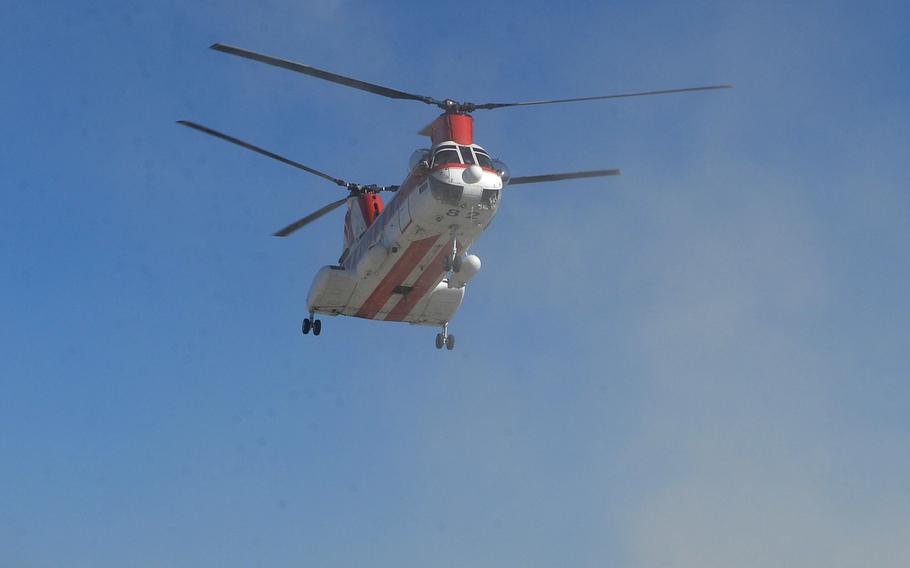
A helicopter lands at Bagram Airfield, Afghanistan, in December 2016. An error by the U.S. military meant some coalition partners, who are supposed to pay back the cost of helicopter flights, got free rides for three years, says a March 22, 2021, report by the Defense Department Inspector General. (Phillip Walter Wellman/Stars and Stripes )
KABUL, Afghanistan — More than a dozen countries supporting NATO’s Afghanistan mission received years of free helicopter rides at the U.S.’s expense, largely because the military didn’t ask them to pay back the costs, a report released this week said.
The Pentagon spent $773 million on helicopter rides for U.S. and coalition personnel and equipment in Afghanistan in the three years starting September 2017, the Defense Department Inspector General said in the March 22 report.
Part of that sum was meant to be repaid by 17 wealthy coalition partners, called the Pay-to-Play group, but the U.S. never requested reimbursement because it had no agreement with them about helicopter transportation, the report said.
That means the U.S. military never determined the per-person cost of helicopter rides and didn’t track or receive information about how many flights the coalition partners had taken, making it impossible to bill them, the report said.
It was unclear how much the errors have cost the Pentagon, but the report warned that the problem will persist unless U.S. personnel in Afghanistan can “obtain flight usage data, determine the rate per person and establish an agreement with Coalition partners before services are provided.”
It confirmed that no orders were initiated “for air transportation services for any of the 17 Pay-to-Play coalition partners” during the three-year period covered by the inspector general's audit.
The Defense Department provides helicopters from outside contractors to coalition partners in Afghanistan under a system called Acquisition and Cross-Servicing Agreements.
ACSAs lay out the broad terms and conditions under which the U.S. provides or receives logistics support, supplies and services to or from partner countries, while supplementary agreements specify the costs and reimbursement methods for individual services, such as helicopter flights.
All 17 of the Pay-to-Play coalition countries in Afghanistan had ACSAs, but it appears that the U.S. did not reach specific agreements on rotary wing air transportation with them.
The report faulted the Army Central Logistics Directorate for failing to adequately oversee the ACSA program.
U.S. Forces-Afghanistan and ARCENT agreed with the Inspector General’s recommendations, written replies included in the report show.
Iceland, a Pay-to-Play country, has pulled out of Afghanistan since the period covered in the report, as have Croatia and Montenegro, among a group of about 20 countries whose transportation costs are covered by the U.S. because, otherwise, they would not be able to take part in NATO’s Resolute Support mission.
All foreign forces could leave the country by May, if the U.S.-Taliban deal signed last year is adhered to.
But President Joe Biden suggested Thursday during his first news conference since taking office that the May deadline would be hard to meet — although he said he does not envisage U.S. troops still being in Afghanistan next year.
wellman.phillip@stripes.com Twitter: @pwwellman